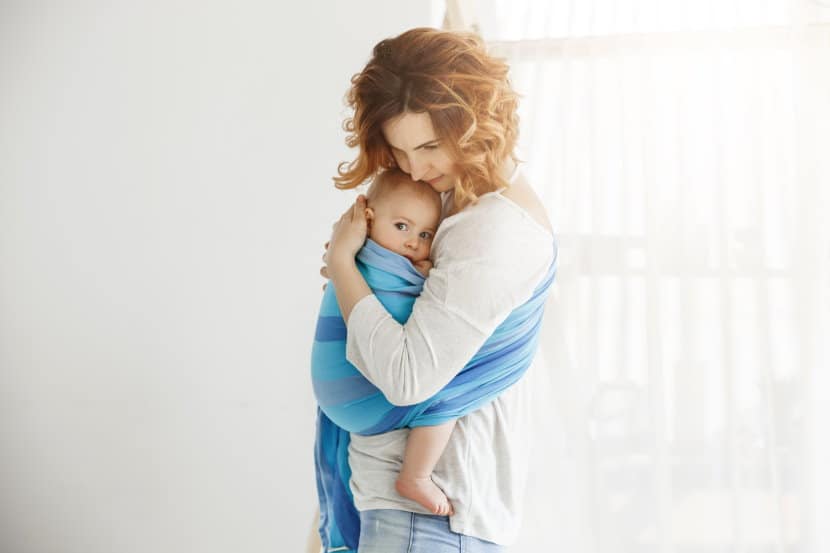Are Narcissists Attached To Their Mothers?
*We may earn a commission for purchases made using our links. Please see our disclosure to learn more.
Narcissists are well-known as lacking empathy and seemingly caring only about themselves. Given that, you might naturally wonder if they can even form healthy attachments to their own mothers. The keyword in that sentence is “healthy.” In fact, not all forms of attachment are healthy, and because narcissism typically forms in childhood as a result of some kind of trauma, it’s hard for narcissists to form any healthy attachments.
Narcissists have failed to develop a healthy sense of self. This greatly affects their ability to form healthy attachments. Some narcissists, notably sons, do form an unhealthy attachment to their mother while other narcissists, often daughters, don’t develop a strong attachment with their mother.
The relationship between a mother and a narcissistic child greatly depends on a number of factors. Among these are whether either parent is themselves a narcissist and if there has been any abuse perpetrated by the mother. Let’s explore how the nature of the relationship between a narcissist and their mother and the way that narcissism forms affect a narcissist’s attachment style.
What Kind of Attachment Do Narcissists Form with Their Mother?
According to researchers at the University of Pennsylvania, narcissists have avoidant attachment styles which cause them to basically keep their distance emotionally, even from intimate partners. But the nature of narcissism means that they need positive appraisals from other people in order to maintain their grandiose self-views.

For narcissistic children, their mother may provide a stable source of the narcissistic supply of adoration that they need to maintain their false self-image. That may result in an unhealthy attachment between mother and child, one in which the mother becomes codependent.
But narcissism also typically forms in childhood as a result of some kind of trauma. This often happens because one or both parents are themselves narcissistic. If the mother is narcissistic, she may also form an unhealthy attachment with her children, particularly one or more sons.
The narcissistic mother will initially idealize her son more so than her daughter. A narcissistic mother’s daughter represents a competitor in her mind, and thus, the relationship she has with her daughter is typically more tense. Her son is not a source of competition; rather, he is an ardent supporter, at least early in life.
As a narcissistic mother’s children grow up, however, they cannot avoid disappointing her, and that causes her to resent and devalue them, just as she will do with any other victim. This pattern of idealization followed by resentment and devaluation produces a narcissistic son who always puts himself first. The metaphorical castration he suffered at the hands of his mother teaches him he can’t trust anyone.
This means that no matter what kind of mother a narcissistic child has, the attachment the narcissist has to her is typically unhealthy. Either she becomes codependent or is herself a narcissist. This doesn’t bode well for the narcissistic child’s adult relationships.
What Do Psychologists Mean by Attachment?
When psychologists are talking about attachment, they are really referring to that emotional bond that forms between an infant and their caregiver. Some psychologists believe that attachment behaviors are part of several evolved behaviors that help ensure an infant will be cared for and survive to adulthood.

Your attachment style develops early in life as a result of experiences you had in infancy. The basic idea is that you either learned as an infant that the world is a relatively safe place where you are likely to get your needs met or you learned that it is not safe and there may be times when your needs won’t be met.
If you learn the world is basically safe, then you have a greater chance of developing a healthy attachment style. You don’t fear being separated from people you love even though you may not like it. Even if you are permanently separated from them for any reason, you still believe your needs will be met. You have a good foundation for changing relationships.
On the other hand, if you learn the world is an unsafe place where your needs might not be met, you will develop one of several unhealthy attachment styles. Because of this, you may have difficulty forming relationships with other people or maintaining them.
Unhealthy attachment styles can also affect your ability to control your impulses and emotions. That can cause problematic behavior on a number of levels. Researchers in psychology at universities in the Netherlands and Ireland found that psychopaths tend to have unhealthy attachment styles, and psychologists at the University of Palermo in Italy found that unhealthy attachment patterns are correlated with violent behavior.
People with unhealthy attachment styles have trouble relating to other people, and that can result in inappropriate behavior.
What are the Different Attachment Styles?

There are four basic patterns of attachment that psychologists have identified. To define these patterns, children were briefly separated from their primary caregiver and their behavior before and after the separation was recorded. The four patterns observed include the following:
-
Secure Attachment
Children exhibiting this pattern might be distressed when separated from their caregivers, but when they are reunited, they demonstrate eye contact with their caregiver and they seek hugs. These children typically develop into adults who can form and maintain healthy relationships.
-
Anxious-Resistant Attachment
Children with this attachment pattern are frightened by separation, and even after being reunited with a caregiver, they continue to demonstrate anxious behavior. These children often develop into adults who have a negative self-image but a positive image of their relationship partners. This can result in codependent behaviors as the individual develops into a people-pleaser even at the cost of their own needs.
-
Avoidant Attachment
This child will typically react calmly to caregiver separation and will also not seek out love upon their return. This is the attachment style narcissists tend to have. As adults, these are independent people, but not necessarily in a good way. They distance themselves emotionally in their close relationships. In other words, they avoid emotional intimacy.
-
Disorganized Attachment
Children with this attachment pattern behave in an odd way or are ambivalent toward the return of a caregiver. They may turn away or hit the caregiver, and this type of attachment often results from childhood trauma. As adults, these individuals want emotional closeness, unlike the avoidant attachment style, but they can’t trust a close partner. Therefore, they tend to avoid emotional closeness. Additionally, they have difficulty regulating their emotions and can be prone to impulsive behavior.
Final Thoughts
Narcissists are typically avoidant when it comes to their attachment style, but when they do form attachments with their mothers, they are not usually healthy in nature. Much depends on the mother’s personality, but often she is narcissistic herself. If so, she will likely form an unhealthy attachment to a son more so than a daughter. If she is not narcissistic, the relationship will often be one of a codependent mother attempting to assuage her narcissistic child.
If you’re involved with a narcissist and want to better understand the difference between narcissism and codependency, this article has invaluable insights. You will benefit from the specific information about exactly what the difference is between these two commonly interconnected mental disorders.
--
If you want more tips for dealing with narcissists, setting boundaries, and managing emotional triggers, make sure you subscribe to my youtube channel




